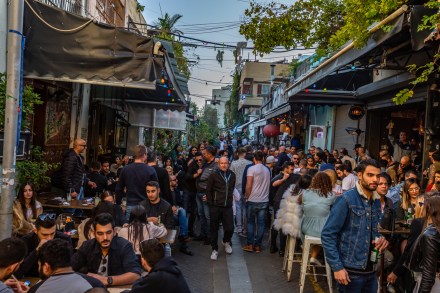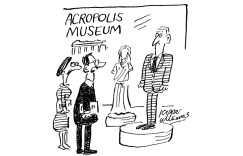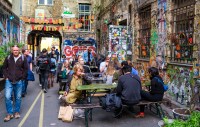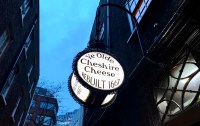Israeli nightlife is slowly returning
Tel Aviv is the size of Bristol, with about 400,000 residents each. While Bristol has 400 pubs and bars, and just shy of a thousand restaurants, the rough concrete charm of Tel Aviv yields no fewer than 1,750 cafes, bars and clubs and more than 4,000 places to eat. Tel Aviv is a dense, hedonistic city: friendly, creative and edgy without the nasty underbelly of European cities. It is known in Israel as ‘the bubble’, secular and in its own world of sun, sea, late nights and wine, apparently separated from the problems of wider Israel. Below the bureaucracy there are amazingly efficient relationships that seem alien to those of us used to





















